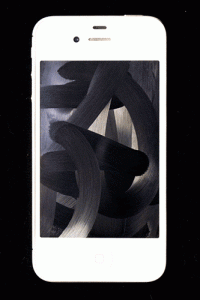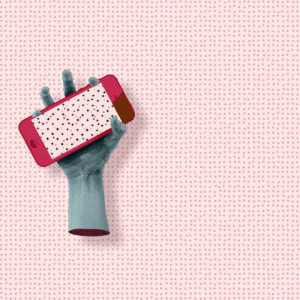Episode 1 with introduction: https://networkcultures.org/blog/2020/04/09/selfies-under-quarantine/
Italian translation: https://not.neroeditions.com/selfie-dalla-quarantena/.
Episode 2: https://networkcultures.org/blog/2020/04/16/selfies-under-quarantine-episode-2/
Video Episode: https://networkcultures.org/blog/2020/06/27/video-episode/
Episode 5 (final episode): DIGITAL IS THE NEW ‘NORMAL’
In collaboration with Danielle, Shaina, Briana, Jackie, Marta, Gabriella, Sydney, Elena, Sophia and Natalia
As this is the ending week of our semester, we go for lighter readings:
Human Contact is Now a Luxury Good
I just called to say…the Phone Call is Back
Zoom Fatigue is Taxing the Brain
The week of May 4th is ‘liberation’ week in Italy. After two months of heavily enforced lockdown, we can finally go out. We can walk around, go to parks, and a few other things. We can, at least, breathe some little more freedom. We can celebrate a break from the technology that has kept us connected yet has also enslaved us during this time.
I proposed my students to read the ‘Zoom fatigue’ article as I want them to understand that their exhaustion, their feeling of being drained, is also my own exhaustion, everybody’s exhaustion.
(Zoom calls according to Saturday Night Live – via Jackie)
When Sophia writes: “I’ve noticed that, as things have transitioned to the virtual space, I have become significantly more anxious and maybe even stressed to communicate via Facetime apps with my friends, family and classmates,” she’s describing a feeling we have all felt.
We have all felt drained after sitting for hours in our apartments, working on our laptops, or maybe just doing nothing, scrolling down for hours.
Why is technology so tiring? What’s in it that sucks all our energy, leaving us worn-out and nothing but numb?
I think of David Cronenberg’s mind-blowing novel, Consumed, exploring the (self) consuming, cannibalistic dimension of technology quite literally and in a super gory style (that I love). Technology is already fused with our body and eating it up from the inside, whether we like it or not.
“Was the iPhone a malevolent protean organism, the stem-cell phone, mocking him who had cameras with real physical shutters whose sound you couldn’t turn off? Promising to replace every other device on earth with its shape-shifting self—garage door openers, solar timers, television remotes, car keys, guitar tuners, GPS modules, light meters, spirit levels, you name it?”
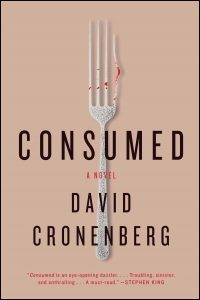
Technology consumes us, silently, with its apparent lightness, giving us the illusion of having no weight. The illusion of being transparent, fluctuating. It blinds us with the promise of eternal connection and, yet, as Jackie writes:
“The technology that continued to separate us even under the guise of connection has become another blockade between ourselves and the world. It really is hard to consider apps like Zoom and Facetime a means of remaining socially connected when technology is impairing our ability to read and conceive physical social cues. A video call with a friend sheer miles away ends up feeling like we are being pulled further apart …The very social circumstance many of us have built for ourselves is just being torn down again as the devices we’ve once used to desperately connect make us cringe as they are synonymous with work. I can’t even watch videos on my laptop without feeling as though I am still in school, even as I consciously know I am avoiding schoolwork. The entertaining function of my laptop is almost nonexistent no matter what the screen shows me.”
Maybe it’s because the lines are now more blurred than ever between work and leisure, between what we DO for a living and what we ARE in life. These devices trick us with the promise of a smooth, seamless transition from life into work, and the other way around. Reality is, though, that the condition of ‘smart working’, the condition by which we are stuck in our little acquarium from where sometimes we re-surface and visually manifest ourselves in a ‘Brady Bunch style’, is the ‘comfort’ zone where power wants to keep us confined.
Do we really want that? Do our bodies need that, crave for that?
“Video calls seemed an elegant solution to remote work”, the National Geographic article says, “but they wear on the psyche in complicated ways”. After reading about the effects that screen life generates on our brains, Shaina concludes: “We are not designed to multitask the way screen mediated communication requires. So if you find yourself feeling exhausted while doing nothing, you too may be a victim of Zoom fatigue.” And Sophia acknowledges: “mentally, I have felt so exhausted from the transition to online learning and I definitely feel a sense of defeat as a result – so, to hear that there are deeper reasons behind it, was relieving to me.”
Every time we use these platforms, we are drained ‘by design’. The more we go deeper into our screen life, the more we will be consumed and eaten up, in a weird process of self-cannibalism à la Cronenberg.
This is why I look with concern and distress at expressions such as ‘the new normal’, ‘the new normality’. Hardly a day goes by without receiving emails, newsletters, invitations to ‘webinars’ that dub this phase of our lives as the new normal (normality).
PHASE 2 BEGINS!
For many this phase may not mean much, but we still want to celebrate as we all start our
NEW NORMAL
(From a food delivery service)
This invitation to a “web live conference”says “the dawn of a new normality”:

And this one focuses on “Culture facing the ‘condition of normality’”:

The operation of re-branding an emergency situation, such as the one we are currently in, as if it were an emerging order, a brand new ‘business as usual’, is deeply problematic and very concerning to me. In this ideological ‘new normal’ technology replaces the body as a clean, safe, sanitized space for so-called social (socially distanced) interactions. It suggests that people can still work and have fun from a distance, fusing and confusing labor and leisure, keeping us atomized while providing the illusion that we are all connected.
But there is no global village in ‘a Brady Bunch style’. No connection in connectivity. No possibility whatsoever for sociality in isolation, even if networked.
Social distancing strives to become the new black. We should oppose that, staunchly and fiercely, first at a language level. Becoming used to describe something that is physical distance as ‘social distancing’ and calling an emergency situation the ‘new normal’ bear the risk of reifying abstract concepts and making them part of our daily reality.
“Ideas and opinions are not spontaneously ‘born’ in each individual brain: they have had a centre of formation, or irradiation, of dissemination, of persuasion-a group of men, or a single individual even, which has developed them and presented them in the political form of current reality.”
Antonio Gramsci, Selections from the Prison Notebooks
I’VE JUST CALLED TO SAY…I LOVE YOU
In the desert of the physical where quarantine and our ever-increasing hyper-mediated life have relegated us, something vaguely reminiscent of our bodies, a little remainder of our organic existence is resurfacing and regaining attention. It’s our *voice*.
A year ago, I joked with my students when asking them to ‘separate’ from their networked devices for 24hrs as a part of our auto-ethnography ‘experiments’ for the class: “you can still use the phone as a phone”, I told them. “I mean, to make voice-calls”. They would stare at me in awe, their gazes betraying their inability to even conceive to perform an old-fashioned action such as dialing a number without even texting to check whether possible or not to bug someone out of the blue. How rude. How inappropriate. For them, Stevie Wonder singing “I’ve just called to say I love you, I’ve just called to say how much I care” in “just another ordinary day” was archeology of the past.
But now things might be changing a bit, the New York Times solemnly declares. Because of the quarantine, because of the craving for anything physical, even if as disembodied as a voice. Yet, still human. Still not ‘scripted’ or ‘rehearsed’ as a voice in a voice message. Still spontaneous and not orchestrated or studied in every single detail as a textual conversation.
Natalia speaks of “the glow of the other human being” that can be perceived from an old-fashioned phone call. “After a few seconds or browsing through the lost corners of my mind, I can recall at least a dozen of moments I remember from all of these 3-to-4-hours-long phone calls I shared with my highs chool friend each week for months, yet I can barely recall a similar amount of memories that would relate to texting with a single person.”

Gabriella adds: “ Every time I use my computer I feel that I have to check Moodle, when I wake up I feel I have to check my email, this shift to online learning has made me anxious every time I use one of my devices. I personally don’t enjoy facetime or zoom or any video chat application, I would rather talk on the phone or obviously physically face to face. I just feel lucky that I got to come back home, to Guatemala before everything exploded worldwide. If I was in Rome, alone in my apartment, I am pretty sure I would be calling people 24/7 and would be so eager to see them virtually face to face, but thank God that is not the case and we can stick to the old fashion way, phone calls.”

Conversely, Marta admits her phobia for voice calls: “I never call…. I really do stress my brain a lot because I hate talking on the phone. The only person I call is my mom… Talking on the phone gives me a lot of anxiety. The thing is that I grew up texting whereas the older generation only had the possibility to call. Now, there are so many ways to communicate and talking is only one of them. You can email, use whatssup, Instagram DM’s, Facebook chat, Twitter, Snapchat and much more. Most of the time, my best friend and I only communicate by sending each other random picture on Snapchat. That’s it. There is no text and no voice involved, yet we can perfectly communicate. In 2020 silent communication is possible and sometimes fast and fun, but it can also destroy relationships due to avoidable misunderstandings.”

Danielle talks about those misunderstandings that can be generated through text. “Texting can be dangerous. Loss of tone, keyboard courage, and ‘receipts’ as us millenials refer to proof. Through texting there have been plenty mishaps on my end. The countless amount of times I have screen-shotted a conversation between myself a someone fighting, trying to send it to another person and I by accident send it directly back to that person… awkward. That isn’t a factor with phone calls. Neither is keyboard courage. On text I will find myself typing up condescending texts at times, whereas in person I wouldn’t be as daring. Texting skips over our holistic selves for sure. It creates a new person.”

Shaina admits: “When my phone rings the first thought that comes to my mind is ‘Ugh!’ I, like many others, prefer texting over calling for communication. But I do not think it is the ideal form of communication. When texting you are unable to multitask the way you could if on a phone call. The other night I was making chicken for dinner and my friend kept texting me and every time, I would have to wash my hands and then answer so I didn’t get chicken juice all over my phone. It would have been much easier to just call her and put my phone on speaker and we could have communicated without interrupting my cooking every few minutes. The other part about texting that makes it less efficient than calling is response time is up to you.
On a normal phone call the conversation is back and forth with no hesitation between responses. When texting, sometimes people can take hours to respond. This can be especially frustrating if you’re waiting on important information. In quarantine, I have been off my phone more than normal some days, trying to disconnect for a little. This caused problems between my boyfriend and I. Normally, we text each other when we have time in between class and work and whatever else we are doing. Now that we have nothing going on, there really is no excuse for why we can’t text 24/7. I started to feel that our conversations were getting boring. Every day the same thing. “What are you doing today?” “Nothing really, probably get some homework done, what about you?” “Same.” There is nothing new and exciting to talk about because there is nothing new and exciting happening right now with everyone being on lock down basically. I found it exhausting to drag these dry conversations out all day long. So I stopped answering as frequently.
I didn’t think this was an issue because for me this had become my ‘quarantine normal’, to look at my phone maybe once an hour and respond to any notifications and then put it away again. But my boyfriend overthought the scenario and created a false reasoning in his head why I wasn’t answering him. One night, he came forward and expressed that he felt I didn’t want much to do with him anymore. He said by me not answering and talking to him all day long he felt unwanted. I felt horrible for making him feel that way. He thought that I was just ignoring him while I continued to text my other friends and be active on my phone. I explained to him that that wasn’t the case at all.

Texting leaves so much room for misunderstanding which can become extremely problematic for a relationship or even work related issues. When we text we lose such a huge part of communication as we know it. We no longer have a face to face interaction, we lack tone, mannerisms and expressions, all non verbal communication is eliminated. These are important factors for humans because we are naturally social creatures who rely on these aspects to fully understand a dialogue.”
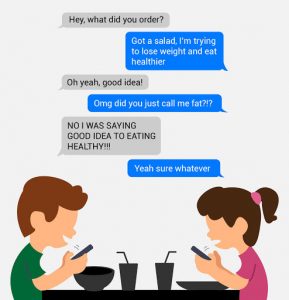
(via Marta)
Sophia also gives her take on the matter: “I definitely agree that there are important social cues lost through messaging, but I also wanted to point out that with those people whom we are closest too, there are ways in which you might develop a sort of texting language with them. For example, my family is very close and we often message in a group chat when we are apart from each other. In this chat my mom and I are usually on the same page and know exactly what one another means because we know each other so well both in the physical world AND the messaging one. But often my dad and brother don’t understand the exchanges my mom and I share in the chat and I think that’s super interesting how out of a group of people so close, my mom tends to understand my texting language more than they do”.

Gabriella concludes with a smart remark on my own behavior when I send back comments to students.
“Professor Della Ratta tends to capitalize her comments on our reflections, and before understanding that she does it for them to be visible, I would take it personally. However, she also feels the need to clarify why she is doing it since many people can take it as yelling, or as something negative. This is an example of how most messages online can be misinterpreted. Not only I misunderstand my professor but imagine how I feel when my boyfriend writes something, and it sounds to me mean because it lacks an exclamation mark or it has no emojis, or he is using the wrong emoji, or why did he write a period, is he mad, did I do something to piss him off?? It is soooooo exhausting!!!!”
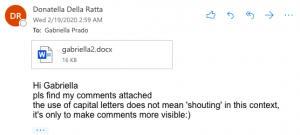
Well, Gabriella, I hope that at least he does not use CAPS, or yellow highlighters when talking to you

TOUCH ME (NOT)
Speaking about disembodiment, and trying to give a name to her lurking anxieties, Briana writes: “What is it that I’m really missing? Every time I’m in bed, ready to go to sleep, for some reason I cannot relax enough to fall into Morpheus’ arms. I start playing with my hair, caressing my cheeks, tapping on my lips, delicately touching my eyelids, brushing my eyebrows; I hug my stuffed animals, rubbing their fur. And I fall asleep. You guessed: I am missing touch. Not whatever touch: the intimate, loving touch that only another human being can provide. Let me tell you, the fact that I caress myself is not only weird to read for you, it’s weird for me to do in the first place. It’s some sort of non-sexual-masturbation. The nurturing act of touching is necessary for the brain to learn to connect human contact with pleasure, and it sets the base for empathy.

(“Since everyone was exercising during quarantine, I decided to do the same. I wore my gym clothes and took pictures. And never exercised”)
What scares me most of all about COVID-19 is not the lack of freedom, but rather the fear of touch that will follow: physical contact, in fact, is the easiest way to get infected. Even though screens have made us feel closer to each other, helped us work online and keep track of time and what was happening in the world, their smooth, anonymous texture cannot replace the touch of another human. Screens can receive our tapping, scrolling, caressing, but they can’t give it back to us.

(“I edited my friends into my pictures to feel closer to them”)
I once read that if we want to have an empathetic culture, we have to learn how to touch and be touched: the thought that this virus might severely affect – and by affect I mean decrease – this kind of human contact, the kind of human contact that can make us empathetic and build strong relationships since birth, makes me sick”.

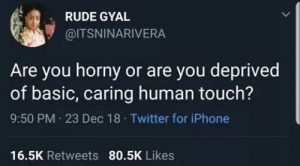
(via Briana)
Cronenberg is a master in describing a society where physical, organic life has already changed into something else, something tech. “That was life with Naomi”, the male protagonist of Consumed concludes, thinking about his lover. “Disembodied (…) No smells, no sights, no sounds. He had been in his phone, Naomi a voice in his brain. On his laptop”.
This hyper-reliance on tech seems to have become already part of our daily lives. Sydney describes something that could have been thought as a sci-fi like situation just a few years ago, but now happens ‘normally’ IRL.

“My sister lives in Virginia and she’s helping the robots around town!”, Sydney’s aunt told her and her family. “Our mouths were agape”, Sydney writes. “What robots are you talking about?”
Here is a link describing what is happening in my aunt’s sister’s hometown of Fairfax, Virginia. Their delivery is now brought via robot. “That’s so cool!” my mom exclaimed. ‘It’s frightening,’ was all I could manage. According to the article, ‘the robots are outfitted with multiple cameras, two-way audio, and can navigate hurdles like curbs.”
At this rate, traveling to the grocery store seems moot when there are robots that will do it for you. Ordering and deciding which brand is the best for you also seems moot when there are even more roots that will do it for you. Perhaps one day, food delivery will all be electronic. We once hunted and gathered. Now we just gather, or rather, purchase. We are only one step away from getting rid of this method completely. There will be no human contact in stores…no cashier interaction, no saying hello to familiar people, and no longer contemplating which food to buy. Human contact will become even more of a luxury in this regard.”
Natalia also reflects on tech-mediated daily life. “Avoiding screens seems barely possible. As most of the world is becoming more and more dependent upon screen-mediated communication, it’s becoming the privilege of a few not to be online. If you’re not Facebook, you do not exist, unless your existence is *rich* enough to speak for itself, with no need for textualization and statistics of hyperlinks to acclaim your status. Avoiding the online is a possibility granted by social standing; it is a matter of having a choice or having no choice: being not able to afford to be online or being able to afford not to be online.”
Elena tries to see the glass as half full: “Human contact is now a luxury good: screens used to be for the elite. Now avoiding them is a status symbol.”

“Elite or not elite? Good or bad? I believe that considering digital devices either good or bad for us is limiting. On one hand digital devices make us waste time, enslave us, even make us less dependent on face-to-face communications and more “human” interactions …but saying that they ruin our life is also wrong. In fact, like wine, if “used with parsimony” they can make our life easier. With the spread of COVID-19 I realized it even more. Without my digital devices, I would not have been able to finish this semester, I would not have kept in touch with my friends, my parents would have had to stop working, I would not have seen all the memes about Salvini and Conte…It hurts only thinking about it. Jokes aside, like a knife can kill or heal, a hand can slap or caress, digital devices can either be a tool or a weapon. Too much use leads us to suffer from technostress*, too little use would lead us to loss.
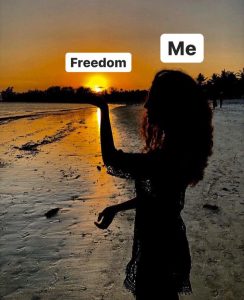
Obviously, there is no way we can escape from this screen mediated life. The medium is the message, right? This only means that phones are infrastructural and therefore, whether we like it or not, we will forever need them (unless there is an apocalypse…hopefully not). Here comes my question: since we can’t get rid of them, why don’t we learn to appreciate them and use them to our advantage?”
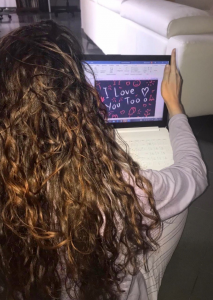
(Picture of me in pajamas, reconciled with my laptop)
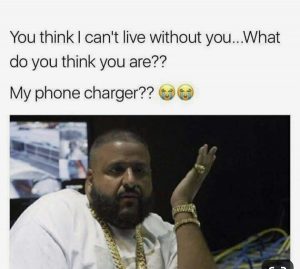
(via Elena)
SO, WHERE DO WE GO FROM HERE?
A couple of weeks ago, after reflecting on Eva Illouz’s chapter on net romance, Danielle wrote the following on our Moodle forum:
“This invoked a very broad question within me. I have thought of this question the entire semester with every single material we read and with every conversation we have, yet never wanted to ask because it seems stupid. But why does studying any of this matter? Why does it matter to all of these scholars, to us, to “expose” or view technology as capitalism. Is it to give us the power to be enlightened on what is “truly going on”? Going back to that original idea of a scholar we read whose name is slipping my mind currently, “even though we know what is happening we will do it anyway.” or something along those lines. After this class and during this class we have and will continue to utilize the internet, continue to create dating profiles, to like and share memes, to elevate our online personas.

Is it in effort to understand the world in which we currently live in? To grasp the current human status? Is it an effort to disgust us and get us to limit our use? I think of it and compare it to cigarettes. Smokers know all of the negative effects, the main one causing premature death, yet the addiction keeps the users using and nothing changes. Does knowledge shape action and habits…no, not when addiction is involved. I don’t think any amount of research or ideology will wean billions of people of an interface that is designed to be addicting. Maybe that isn’t the goal… but what is and does it differ from person to person. Although this may seem off topic. This broad question is really the heart and soul of the class- what are everyone’s opinions.”
WOW, I thought. How bright and smart is this young woman who writes such a honest thing challenging her professor and her peers (and even before final grades have been submitted). I saw this question surfacing many times, emerging silently in my students’ gazes. But never was it phrased in such a thought-provoking manner. I was hoping some of the others take advantage of Danielle’s question and say something (e.g. it matters for credit, no?!). Nobody did, though. Maybe for the reasons listed here by Jackie:
“I think a lot of us have had times where we asked ‘why the heck are we doing this’, but some existential things are better left unsaid and thus buried into our subconscious. Nonetheless, I am thrilled to think about it now”
(DISCLAIMER: I’ve re-proposed everyone to think about Danielle’s question as we approach the end of the semester)
“To frame my answer, I offer the scene in which the rest of us have not noticed nor actively responded to Danielles question. Why did we do that? Why don’t we actively read each others when work it’s so accessible to us now, and why don’t we respond with our thoughts immediately? If the internet meant to allow us to connect, why don’t we use it to do so? Studying our identities as formed by the intent is like Alice falling down the rabbit hole—but aren’t we all just so damn curious as to why Alice decided to stick her head too deep knowing no good would come of it?

The complexity of the human mind is something that we can only attempt to comprehend, but by separating it into these little things (ie adolescent behavior, abnormal psych, language acquisition, and of course our new networked identities) we are trudging forward to mapping what makes us human (and for the capitalists its also a step towards making the perfect apocalyptic artificial intelligence with such knowledge). I think searching for reasoning beyond this natural curiosity is futile and has the same impact as me asking why you took this class—so you were interested, okay, but about your interest made you stay unlike the group of our few and fleeting men that left after the first day of class? Why does studying our networked identities matter to you and your degree, and eventually your career?
Personally, though I am clearly a tech obsessed lunatic, I label myself as different than the mass of identities out there, but throughout the class I was able to use critical theory to understand why everyone, including myself, is the way they are. This knowledge certainly not useless as, beyond sheer understanding, I found it to be vital to developing a much needed empathy and considering what it really means to connect”.
(Thank you, Jackie, for mentioning the word “empathy”, something that it is much needed in our daily life as much as in critical theory).
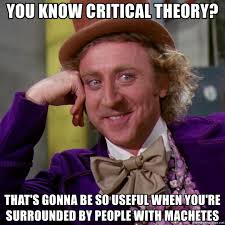
Shaina says: “I am glad Danielle’s question was re-surfaced because this is something I have thought about as well during the course of this class. What is the point of learning anything?
Before this class, I have never taken any communications course and even the liberal arts courses I have taken were limited. My home base school is a research institution and I am a science major studying kinesiology. I learn mainly about how the body works and with that information I try to apply that knowledge to my own lifestyle habits to create a healthier me. I also enjoy sharing that knowledge with others to help them with their own bodies.
The first few weeks of this course, I thought the information was interesting but I did not really care much about it because it has nothing to do with my major or future career. I’ll be honest, I took it for credit. But, with all that we have learned, I have caught myself applying the information in a useful way. I would definitely say this class has changed the way I use apps. I have tried to eliminate the majority of my social media (but Instagram is something I can’t seem to let go of). I was tired of feeling consumed by my phone. This class has laid out why I am so addicted to my phone and social media. With this new understanding, I was able to pinpoint a lot of where my habits stem from. Some are by design of the apps, some are simply human psyche, but regardless I was able to find answers. This class has made a huge impact on how I now view the digital world.
I think that is the purpose of learning, to apply that knowledge to something greater than the classroom (or whatever setting it was learned), however that may be.”
Elena adds: “That would allow us to find an equilibrium, the ‘just right’…this class gave me the opportunity to know better my physical and digital self, making me realize, as a result, that we should truly know our cyborg’s identity to make the best out of it.”
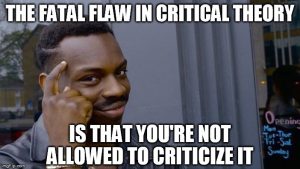
Sydney recalls Euripides’ quote “Question everything. Learn something. Answer nothing”, and observes: “How sad that quote is, and it makes sense when you realize that Euripides is one of Greece’s most infamous tragedians. Isn’t this class a tragedy? It is all about taking away the veil of reality, the comfort of real life, and learning how awful the internet can really be and how it can negatively affect us. I don’t think we are necessarily answering something big here. Our professor has never given us a multiple choice question where only one answer is correct. Everything has been about expanding our view on what it means to be an internet user. We question everything we know. We have learned so many things (algorithms, theories, etc.), but we have never really answered huge questions. And I think that’s okay. Euripides didn’t answer anything, but his name is still remembered 2,500 years in the future because he was brave enough to challenge society and ask questions. That’s our job.”
Finally, Danielle goes back to her own question, writing about critical theory: “I think at first the idea pissed me off… why must we make everything about capitalism??? But after all of these classes, it was a lot cooler than I thought it would be. Something I would never come to on my own. The whole point of college for me was to have a pool of people that love thinking as much as I do, and I wouldn’t have made this comparison on my own.”
Natalia has made her own drawing of (how I call him) “Uncle Marx”.

I can only add something from another critical theory giant, Antonio Gramsci:
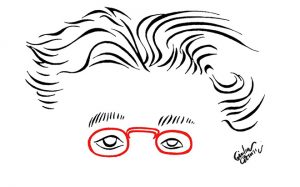
“The point of modernity is to live a life without illusions while not becoming disillusioned”.
(Gianluca Costantini – image via: gramscitorino.it)
But let’s not forget Neo and Morpheus, who deeply inspired this ‘red pill’ class.
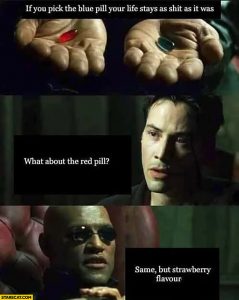
PS.
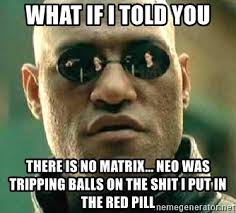
HOW TO DISAPPEAR COMPLETELY
As an ending note, Natalia writes about invisibility and disappearance. She made me think about this Radiohead’s song “How to disappear completely”:
I, we, wish that you disappear from the zone of discomfort and anxiety where you might have been in these past months, and reappear in a place of light and lightness.
“In a little while
I’ll be gone
The moment’s already passed
Yeah it’s gone”
Goodbye, for now, and see you in that lighter place!
From Natalia’s blog:
“A desire to become this thing—in this case an image—is the upshot of the struggle over representation. Senses and things, abstraction and excitement, speculation and power, desire and matter actually converge within images.”
—————————————– “In fact, it is a misunderstanding that cameras are tools of representation; they are at present tools of disappearance. The more people are represented the less is left of them in reality.”
~ Hito Steyerl
The Invisible …?
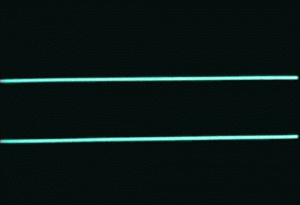
I’m the invisible man
I’m the invisible man
Incredible how you can
See right through me

When you hear a sound
That you just can’t place
Feel somethin’ move
That you just can’t trace
When something sits
On the end of your bed
Don’t turn around
When you hear me tread
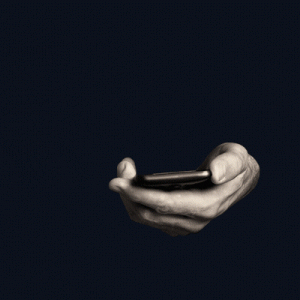
I’m in your room
And I’m in your bed
And I’m in your life
And I’m in your head
Like the CIA
Or the FBI
You’ll never get close
Never take me alive
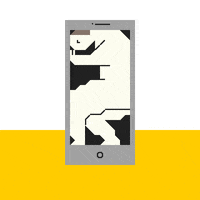
Now I’m on your track
And I’m in your mind
And I’m on your back
But don’t look behind
I’m your meanest thought
I’m your darkest fear
But I’ll never get caught
You can’t shake me, shake me dear
